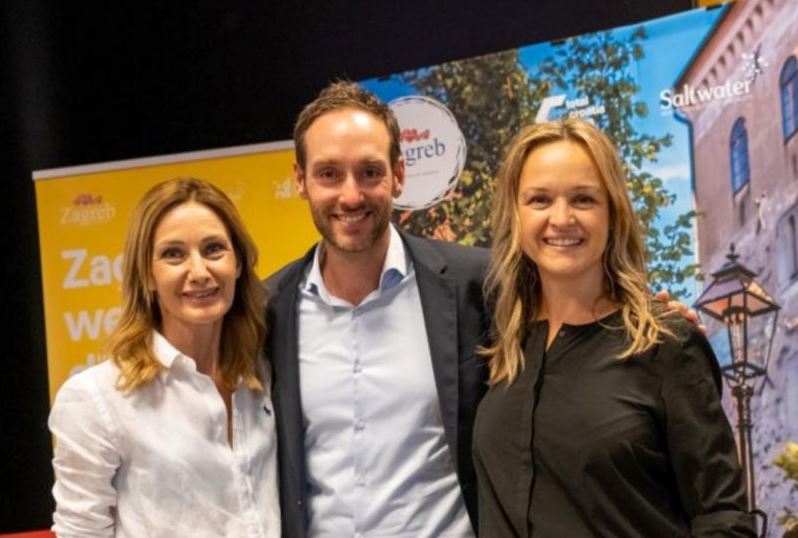Minister Expects Fuel Prices to go Down as of Next Week
ZAGREB, 29 March 2022 - Economy and Sustainable Development Minister Tomislav Ćorić said on Tuesday that fuel prices could go down next week again, and that in case they escalated significantly for a longer period of time, the government could again resort to reducing excise taxes.
Ćorić told reporters this after a meeting of the ruling coalition partners, when asked how the government planned to respond since fuel prices have gone up again.
As of Tuesday, Eurosuper 95 is sold at most petrol stations in the country at HRK 12.45 per litre, HRK 0.61 more than on Monday, when it cost HRK 11.84 per litre on average, while the price of Eurodiesel has gone up by HRK 1.49, and prices of premium fuels have also increased.
Ćorić said that last week had brought an increase in fuel prices in reference markets and the increase was primarily due to an increase in prices of diesel and blue-dyed diesel, and slightly less of petrol.
"It is encouraging that the first two days of this week have brought a drop in fuel prices in reference markets and if that trend continues, next week we will have again a drop in prices. Until then, we will not respond," he said.
Fuel prices have been oscillating for weeks but should they escalate more significantly and over a longer period of time, the government "would possibly again resort to (reducing) excise taxes" as "it has no other significant instruments," he said.
No marked rise in electricity prices other than the one announced, no rolling blackouts planned
As regards the increase in electricity prices, reporters asked the minister if citizens should fear the increase would be higher than the government's projection of 9.6%, to which Ćorić said that the 9.6% increase was calculated based on the consumption of the average household in Croatia.
"The increase is as has been communicated. Whether it will be 8.7% for someone or 10.1% for someone else, depends on the size of the household and monthly consumption... however, an increase that would be more significant than the one announced will not happen," he said.
Ćorić also said that Croatia was not at risk of rolling blackouts and that it meets most of its electricity demand from own production, with imports constituting only a smaller portion.
Speaking of today's coalition meeting, he said that one of the topics discussed were renewable energy sources.
Capital Injection Into Local Water Management Company Saves 140 Jobs
ZAGREB, 29 March 2022 - Thanks to an injection of fresh capital of HRK 15.81 million for the Daruvar-based Vodoprivreda water management company, which employs 140 workers, its business future has been secured.
The company is for the most part owned by Bjelovar-Bilogora County and after the company's recapitalisation, the majority owner now is the Zagreb-based EnergoVizija company while the county's ownership share has decreased from 60.58% to 29.67%.
County Prefect Marko Marušić underscored that the company's agony had been ongoing for two and a half years and now it had been bailed out. Most importantly, 140 jobs have been saved, he said.
Marušić recalled that as soon as he stepped into office he was faced with the problem facing the company and that talks had to be held quickly with the company's creditors and investors, resulting in a favourable outcome for all stakeholders.
Marušić underscored that the county did not sell any shares and that no future strategic decision would be possible without its consent.
EnergoVizija's director, Kamilo Vrana, also said that it was important that jobs were saved.
Vodoprivreda CEO Robert Marinić underscored that restructuring the company and accepting market competition would be the management's first move.
During an extraordinary assembly on Monday, two members of the Vodoprivreda Supervisory Board were replaced and three new members representing EnergoVizija were elected to the board, Bjelovar-Bilogora County reported on Tuesday.
Jan de Jong on Nomads, Visas & Dubrovnik 'Work. Place. Culture." Conference
March 29, 2022 - A lot has happened in Croatia over the last 2 years in the Croatian digital nomad story. Ahead of the new Work. Place. Culture. conference in Dubrovnik, TCN catches up with one of the instigators of change - Split-based entrepreneur, Jan de Jong.
A busy season for Croatia's digital nomad story is about to begin. Last year's highlights included the introduction of the digital nomad permit on January 1, 2021, and destinations such as Zagreb and Dubrovnik attracted global interest with award-winning events such as Zagreb Digital Nomad Week and Dubrovnik Nomads-in-Residence project.
Both Zagreb and Dubrovnik will continue their push to position themselves in the market in 2022, with Zagreb Digital Nomad Week 2022 set to take place in June, and a new conference before that in Dubrovnik, as previously reported on TCN - Work. Place. Culture.
No self-respecting nomad conference would be complete without the participation of the nation's favourite Dutchman, Jan de Jong, whose pioneering efforts in instigating the nomad permit, as well as the co-founding of the Digital Nomad Association Croatia have been key to Croatia's rapid rise as a popular nomad destination. In the first of a series of interviews ahead of the conference, TCN caught up with Jan to reflect on a crazy couple of years, as well as looking forward to what is coming next.
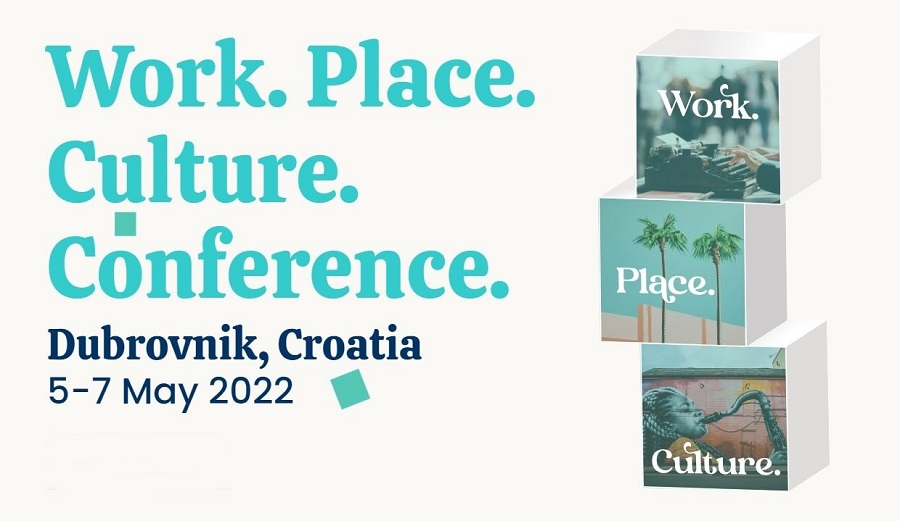
1. Two years ago, the term 'digital nomad' was almost unheard of in Croatia, and today Croatia is one of the most cited countries in Europe on the topic. As the initiator of the Croatian digital nomad permit (only the second in Europe) and co-founder of the Digital Nomad Association Croatia, you have played a significant role in that. Reflect on that journey briefly for us.
Over the past 15 years that I have lived in Croatia, I have started several businesses and initiatives. I have to admit that even building a big business doesn’t give me the same fulfillment and satisfaction as I am getting from what we are doing by putting Croatia on the world map as a digital nomad hotspot. It’s a joy to be surrounded by amazing people with different backgrounds who all want to turn Croatia into their temporary home. I strongly believe that our efforts can help turn Croatia into a more sustainable, year-round destination and that the young and smart remote work professionals can leave a positive impact on our youngest generation in Croatia.
(With DNA Croatia co-founders, Karmela Tancabel and Tanja Polegubic)
2. While the visa/permit was a headline attraction, the reality is that few nomads (by definition) stay in the same place for a year, and the bigger challenge is to showcase Croatia as an attractive remote work destination for 1-6 months. You co-founded the world's first Digital Nomad Association, DNA Croatia. Tell us about that, and about the excellent work it has performed in recent months connecting initiatives and building community.
Together with my co-founders of DNA Croatia, Tanja & Karmela, we are making strong efforts daily to unite and serve digital nomads in Croatia. However, truth to be told, we can’t make the impact we want to make by ourselves. That’s why we were very excited to bring Michael Freer on board as the director of DNA Croatia last November. With Michael's experience and full-time dedication, we have been able to demonstrate what DNA Croatia is capable of doing. Michael spearheaded several national and international campaigns, including community-building initiatives with a team of 8 volunteers in 8 different cities/towns across Croatia and organizing and participating in conferences in London and The Hague – promoting Croatia abroad as a digital nomad welcoming destination. I am also very proud of the support we are offering to Ukrainian remote work professionals who wish to apply for the digital nomad permit. All in all, more and more stakeholders find their way to DNA Croatia, which means that we are slowly but surely becoming the kind of NGO we want to be, which is to be the “go-to” organization for the digital nomad eco-system in Croatia. Many more developments are about to take place, including the opening up our DNA Croatia contact center. We will make a phone number available for when digital nomads have any questions during their stay in Croatia. Soon more about this.
3. One of the comments I hear a lot from visiting nomads is the level of public-private partnership in Croatia, something that hardly exists elsewhere. You had to negotiate with 5 ministries for the permit, for example, the cities of Zagreb and Dubrovnik have been very supportive of nomad events such as Zagreb Digital Nomad Week and Dubrovnik Nomads-in-Residence, and DNA Croatia recently agreed a partnership with the Croatian National Tourist Board. Tell us about the importance of this in moving the Croatian story forward.
The first step is always to acknowledge either the problem, challenge and/or opportunity. If we as a country, region, city, but also as citizens - acknowledge that depending on strong seasonal tourism is a problem and that bringing digital nomads to Croatia – year-round, is an opportunity – only then we can get everybody on board in pursuing our goals. And none of the stakeholders can do this by themselves without support from the other stakeholders. If Croatia wants to become a top destination globally for remote work professionals, we will need to start collaboration between the government, municipalities, national, regional and local tourist boards, private sector – and I hope that DNA Croatia can have a coordinating role in all of this.
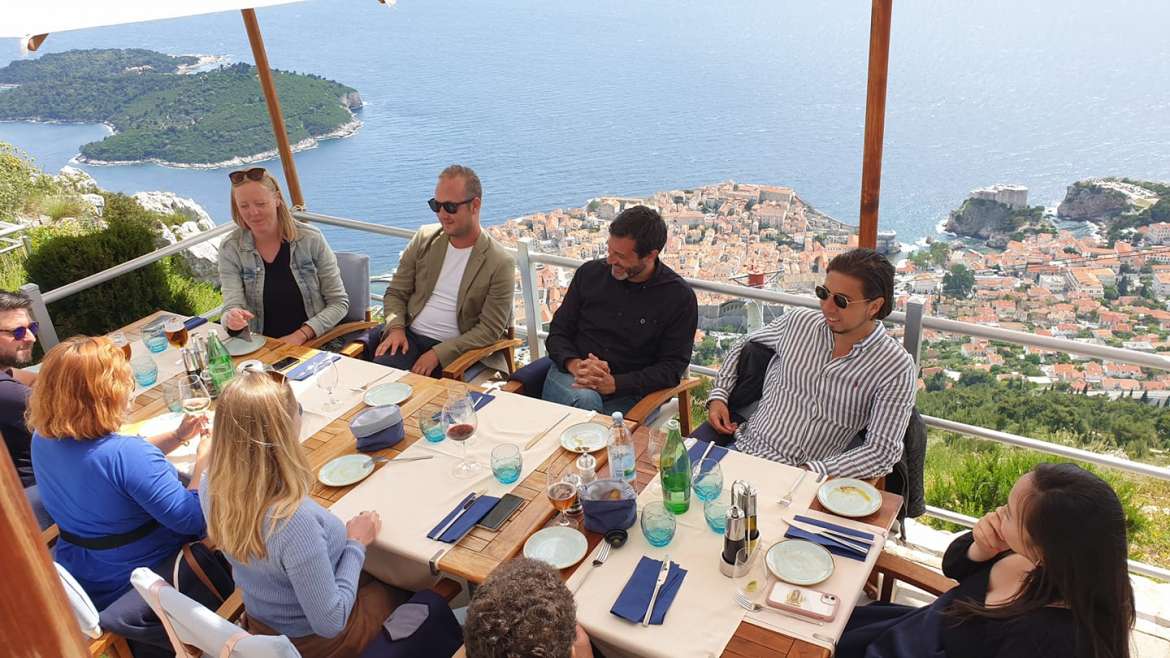
4. This is Croatia, and even though things are moving very quickly, it is impossible to please everyone. The permit is not perfect (although it was named the best in the world by one nomad portal), and several permit holders would like to extend their stay beyond the one-year maximum. How likely is that to happen, and what changes to the permit are being worked on?
Yes, there are several changes to the permit we would like to see in the future, including the possibility to renew the permit after 12 months and some changes to tax laws. Right now, digital nomads are exempt from paying income tax on the income they have as a digital nomad, however – officially taxes on other income, such as dividend, crypto gains, rental income, etc. are not exempt. Even though the Croatian tax authorities will most likely not go after such taxes, we would like to see this changed in the law.
The ministries are informed about our wish to see some of those additional changes, however – unfortunately I don’t expect to see any of such changes happen this year, simply because it is not high enough on the priority list.
5. You are heading once more to Dubrovnik on May 5-7 for the Work. Place. Culture. conference. The city has been at the forefront of Croatia's digital nomad revolution, hosting the first-ever digital nomad conference in Croatia, as well as the award-winning Dubrovnik Nomads-in-Residence program. Tell us a little about Dubrovnik's journey so far.
Dubrovnik was perhaps more than other cities suffering from mass tourism during the season. They were the first to acknowledge this problem and to acknowledge the opportunities that can come from hosting digital nomads year-round. And once you have a city and tourist board that understands this, you can accomplish anything you want, which is exactly what Dubrovnik is doing right now – by demonstrating real leadership when it comes to turning the city into a digital nomad welcoming destination. As a founding member of DNA Croatia, I can only say that I like what I am seeing in Dubrovnik and I hope that this serves as an example and inspiration to other cities and regions.
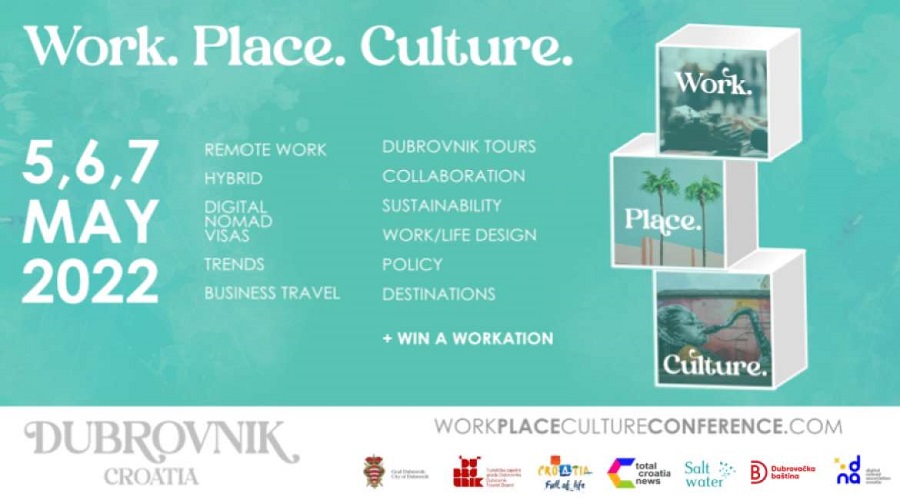
6. Who is the conference aimed at, why should people come, and what will be your role?
The targeted audience of this conference is not just digital nomads, but is actually more focused on the remote work professionals in general. I think there is also a lot to learn here for employers, because the way people live and work has significantly changed over the past few years. Before, we spoke a lot about work/life balance. Nowadays you more often hear about work/life integration. This is a new way of working, for both employees, freelancers and for employers. In my opinion, as a remote work professional and employer myself – I believe that the content of this conference couldn’t be more relevant.
7. Where would you like to see Croatia in 5 years in the remote workspace, and how do we get there?
I hope that in 5 years from now, when remote work professionals speak about “working from anywhere” – that they speak and think about Croatia as the place to be. Croatia should be known for being an affordable, authentic lifestyle destination – with all required infrastructure available for working remotely, including a thriving community.
How do we get there? Content, content, content!
- Content in terms of authentic experiences and things to do, 12 months a year.
- Content in terms of conferences aimed at digital nomads worldwide.
- Content in terms of user-generated blogs, vlogs, posts, stories, tweets – and local, regional and national promoted content
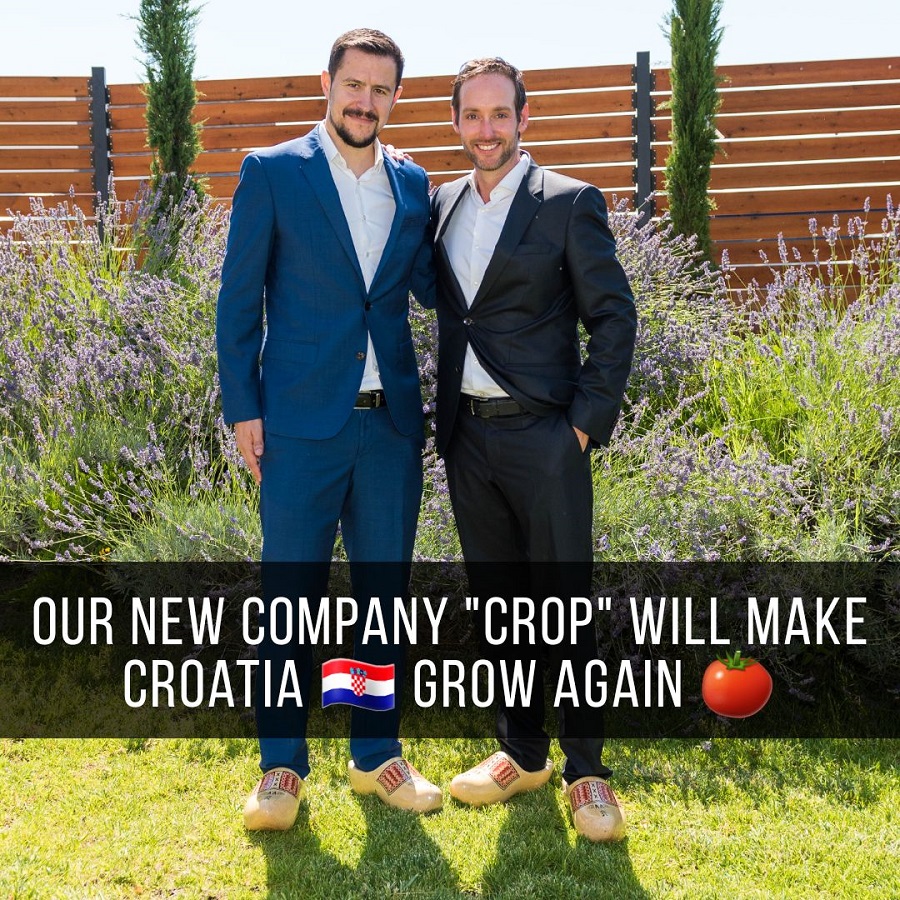
8. Although you are primarily known as the Croatian Nomad Visa Guy, this is actually only a small part of what you do. One of your current missions is to help revitalise Croatia's agriculture. Explain what you are trying to achieve, how it is going, and where people can follow the story.
Being a Dutch entrepreneur in Croatia, I wanted to be the bridge between the Netherlands and Croatia – in a way that I would like to bring more of the Dutch agriculture technology to my new home country. In the past, Croatia used to produce enough food to feed an entire region. Today, Croatia is a food importing nation. That is why, together with my friend Jerko Trogrlic, I co-founded the company CROP. It is our mission to make sure that Croatia becomes less dependent on importing food, and ultimately to help turn Croatia into a food exporting nation again, like it used to be.
Currently we are working hard, together with our Dutch partners, on developing the first project, which is a 6-hectare greenhouse for growing cherry tomatoes. With a strong focus on sustainability, we plan on using geothermal heat for heating our greenhouse and solar energy for our grow lights. An estimated investment of 18 - 20 million EURO, which would create some 60 new full-time jobs in an area that desperately needs new jobs.
You can follow Jan de Jong on LinkedIn.
For more information about Work. Place. Culture. in Dubrovnik from May 5-7, visit the official website.
For more news and features about digital nomads in Croatia, follow the dedicated TCN section.
KK Split Gives Away Another Home Game to Zadar 77:78 (42:36)
March 29, 2022 - KK Split has given another home game away to Zadar, losing 77:78 at Gripe on Tuesday night.
Almost two weeks have passed since the "Yellows" lost their place in the sunlight on the last day of the regular season in the Croatian HT Premijer Liga. KK Zadar had dominated most of the game and managed to steal points at Gripe with a convincing 81:95 victory.
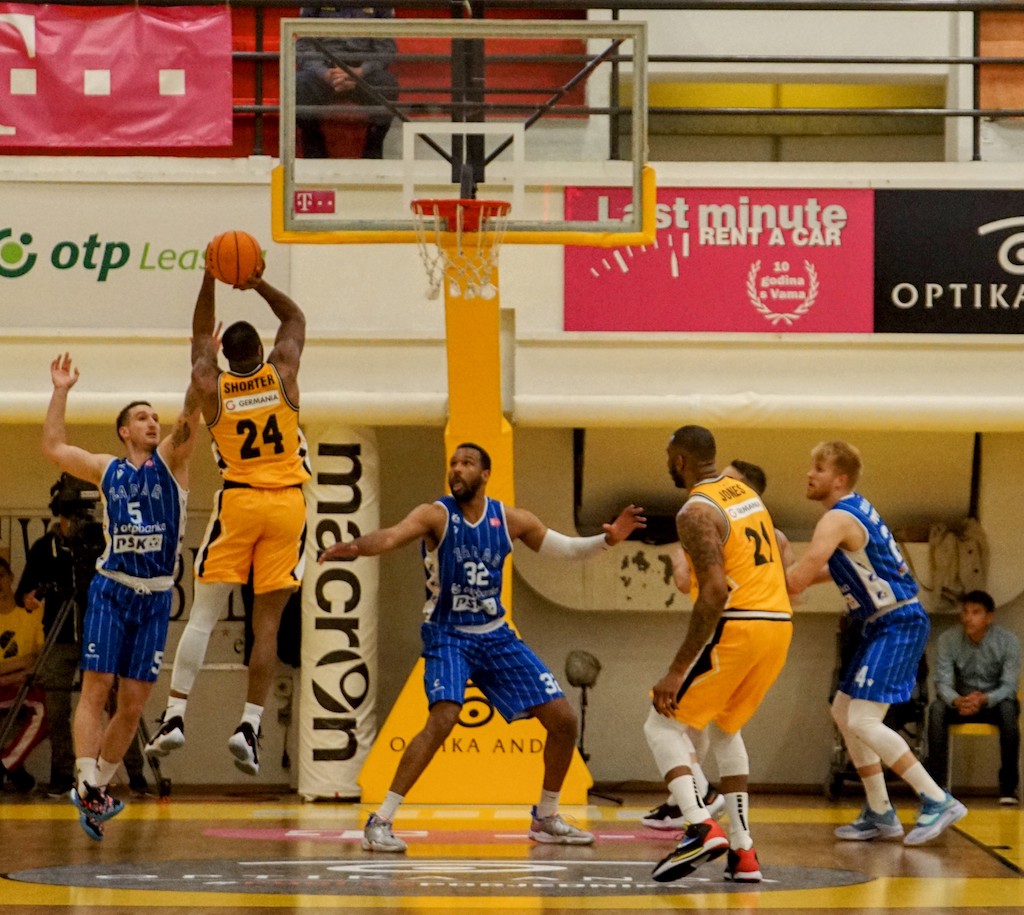
Since then, Split won all three games against Cedevita and at Gorica during the championship round of HT Premijer Liga and pulled off a surprise win at Borac in the ABA League.
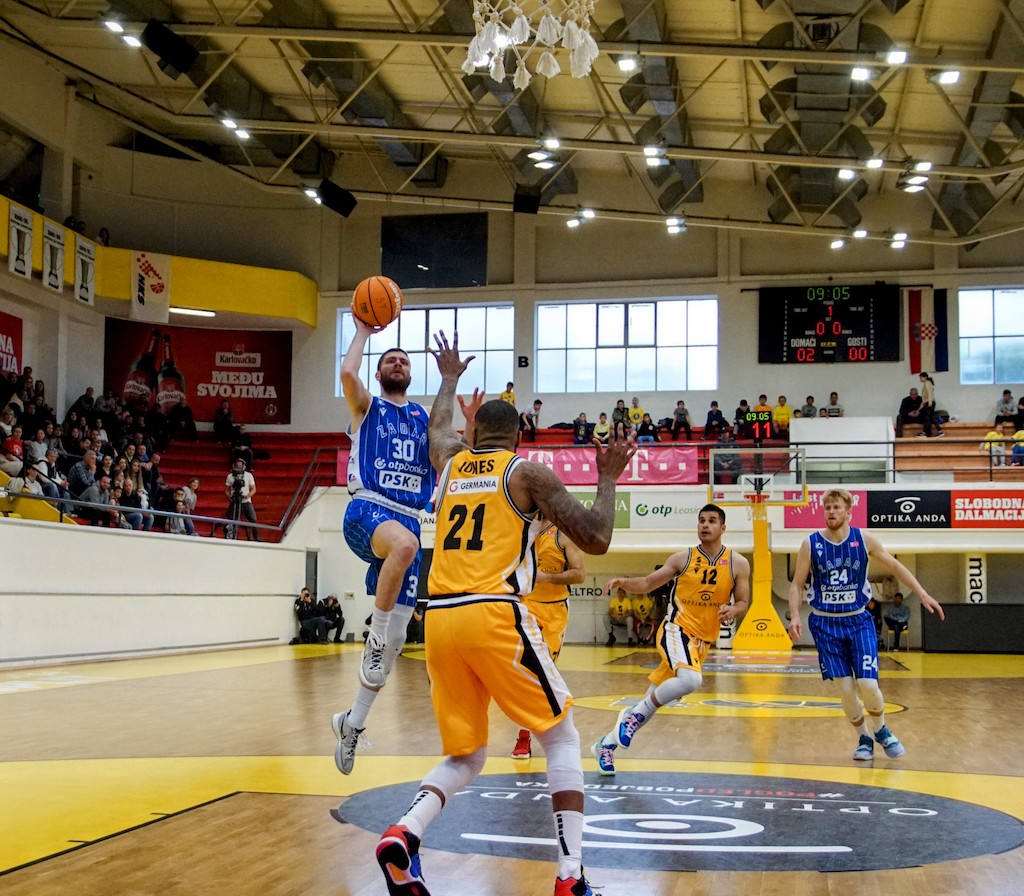
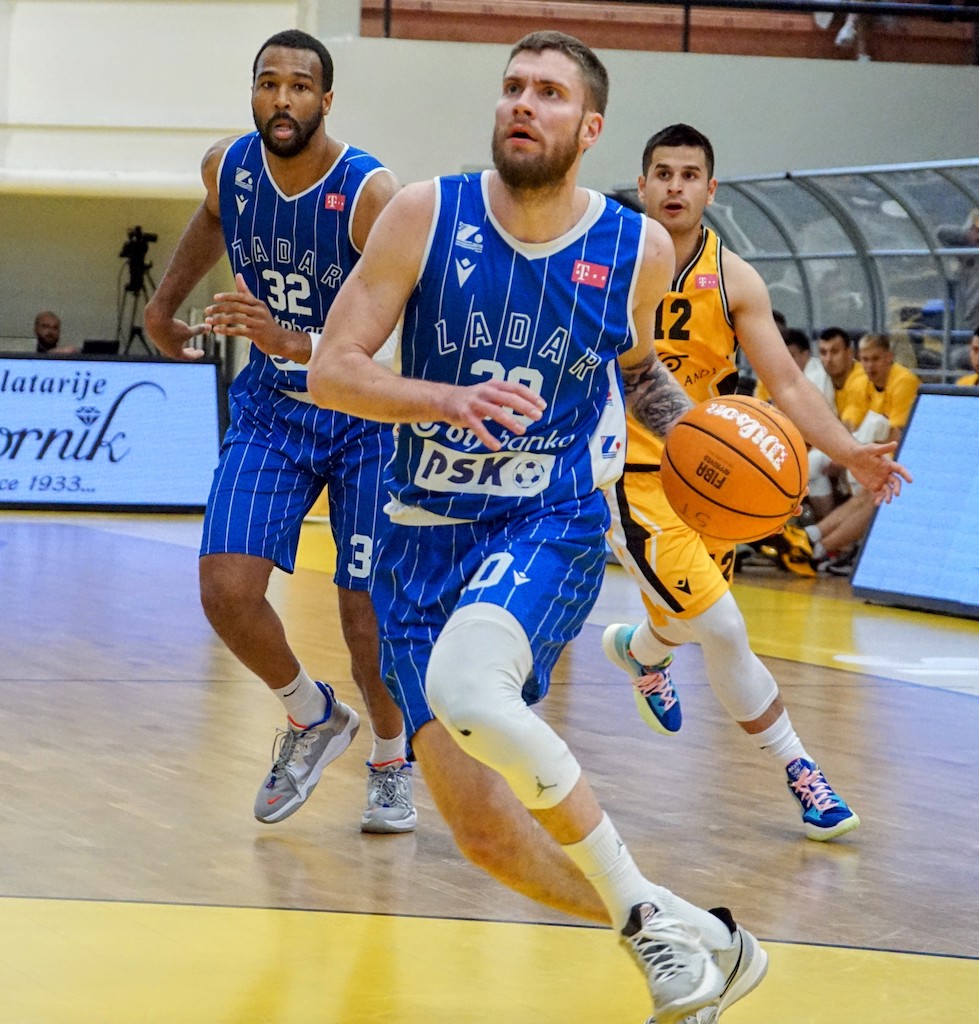
Zadar won its final game of the regular season against Zabok and won at home against Cibona in the championship round. After that, however, they lost at home in the ABA league against Ljubljana (77:92) and then again closely at Mornar (86:84).
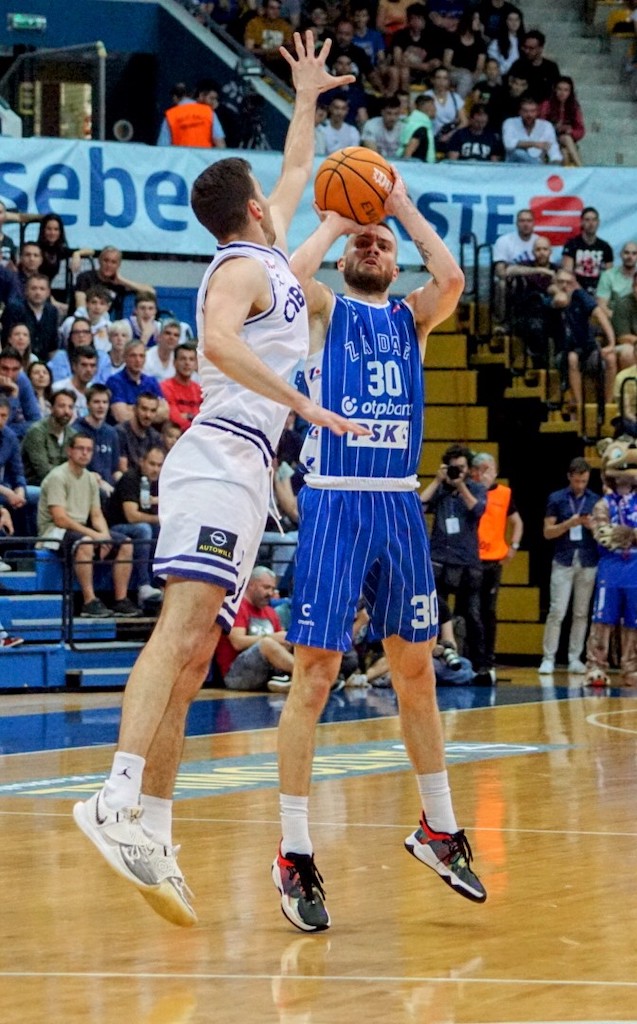
Tonight Split dominated most of the game but failed to make the kill. At Gripe, 900 fans saw a good game from Split during the first half. The home team used their advantage under the basket. Zadar was missing Vuković and Bursać, two experienced big men. With space under the basket, the Yellows were able to set up a successful in-and-out game with easy baskets from the perimeter.
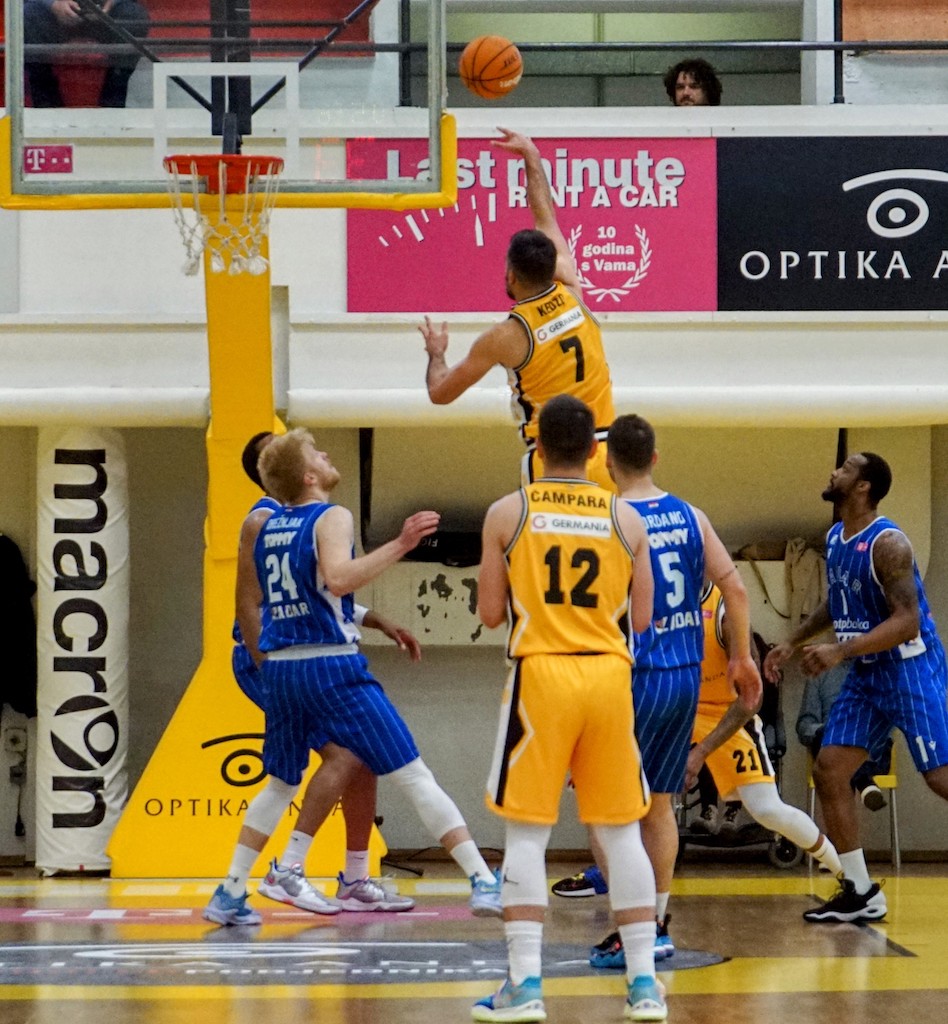
During the third quarter, guest coach Anzulović and his team were able to find answers. Zadar's stolen talent from Podstrana, Tomislav Buljan, used his chance and gave his team the necessary extra energy. The U19 Finals' MVP used his 11 minutes for 6 points and 4 rebounds and kept the home centers busy.
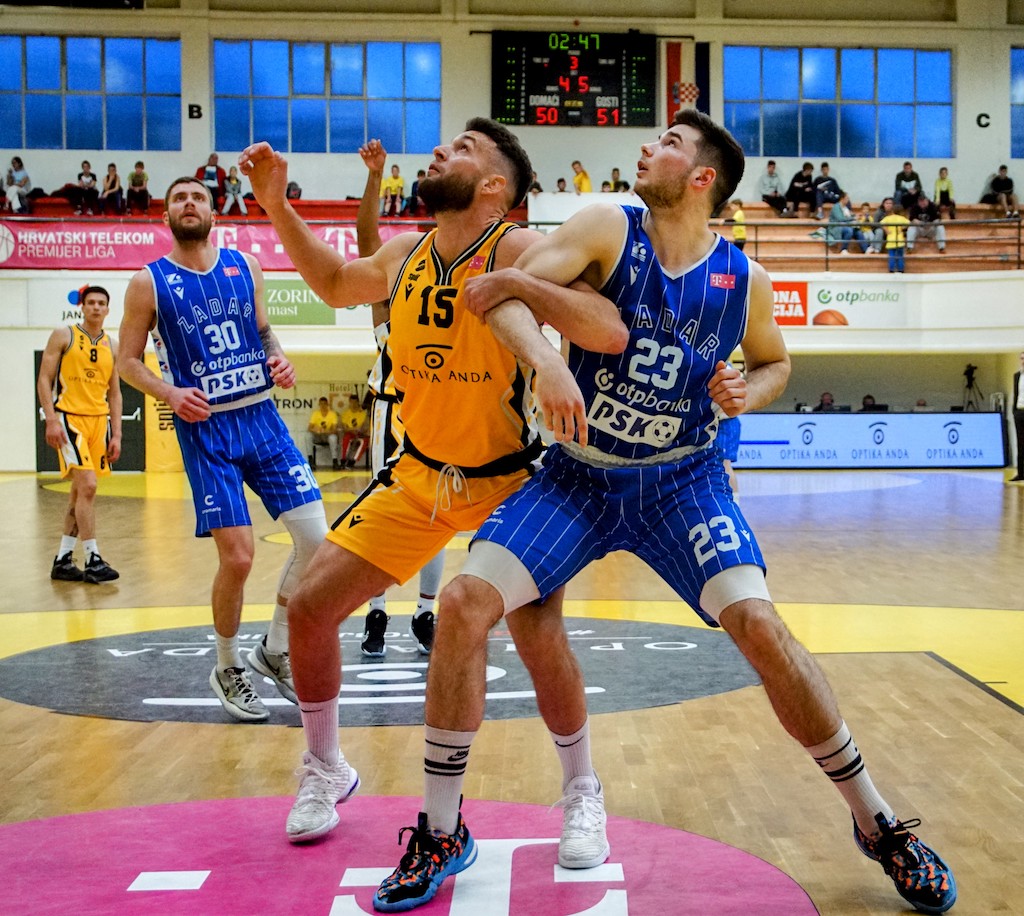
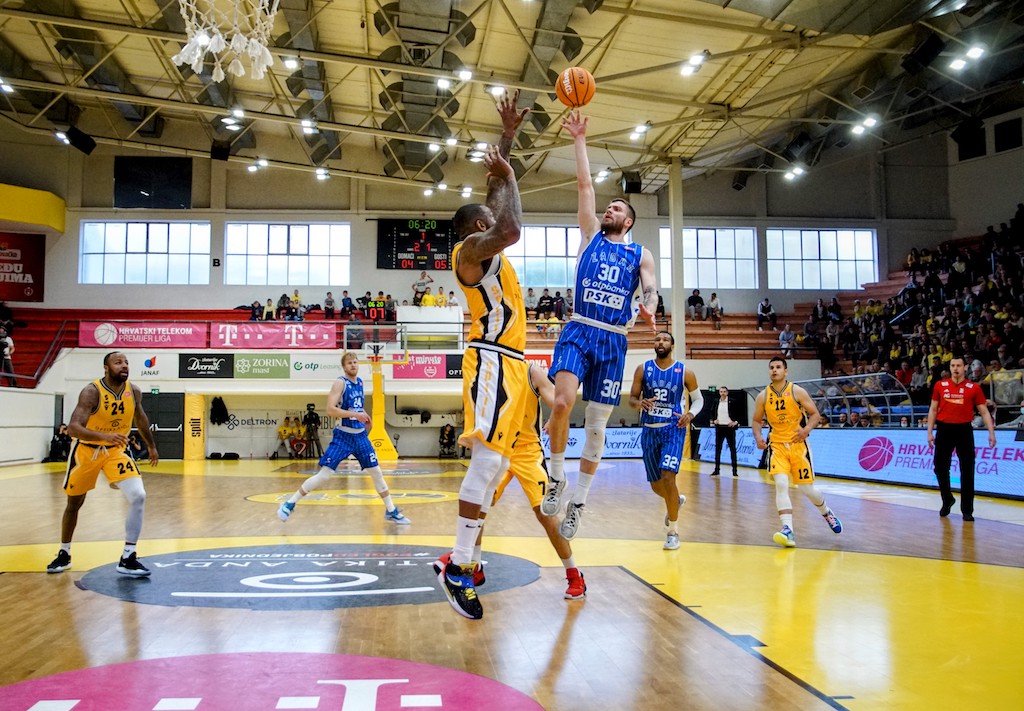
A few minutes before the end of the game, Split looked like the sure winner with a 71:62 lead and just less than 4 minutes to play. However, when it was needed, guest captain Mavra started making his outside shots again. With only seconds to go and the game tied, Shannon Shorter was blocked by Zadar's Justin Carter. The American combo guard delivered a convincing game with 15 points, 11 rebounds, and two critical blocks. His last block sealed the victory.
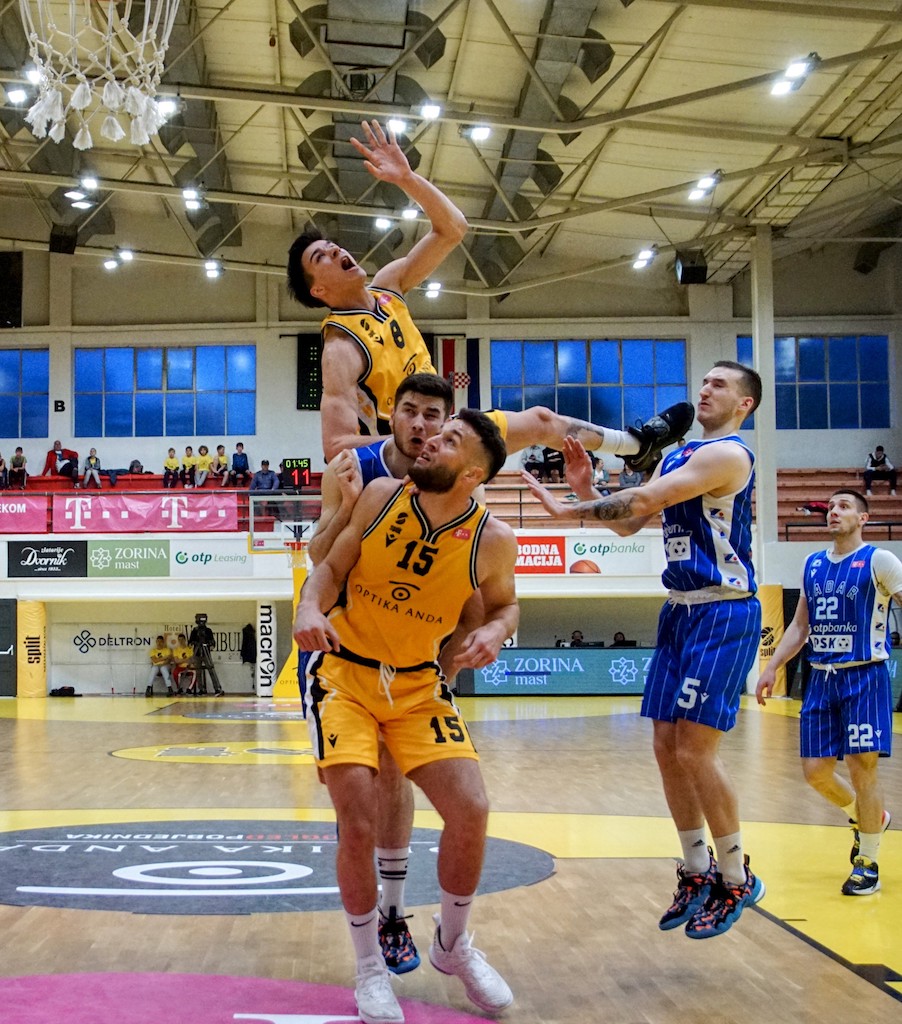
The top scorer of the night was guest captain Dominik Mavra again with 19 points (5 of 7 three-point shots) and 8 assists.
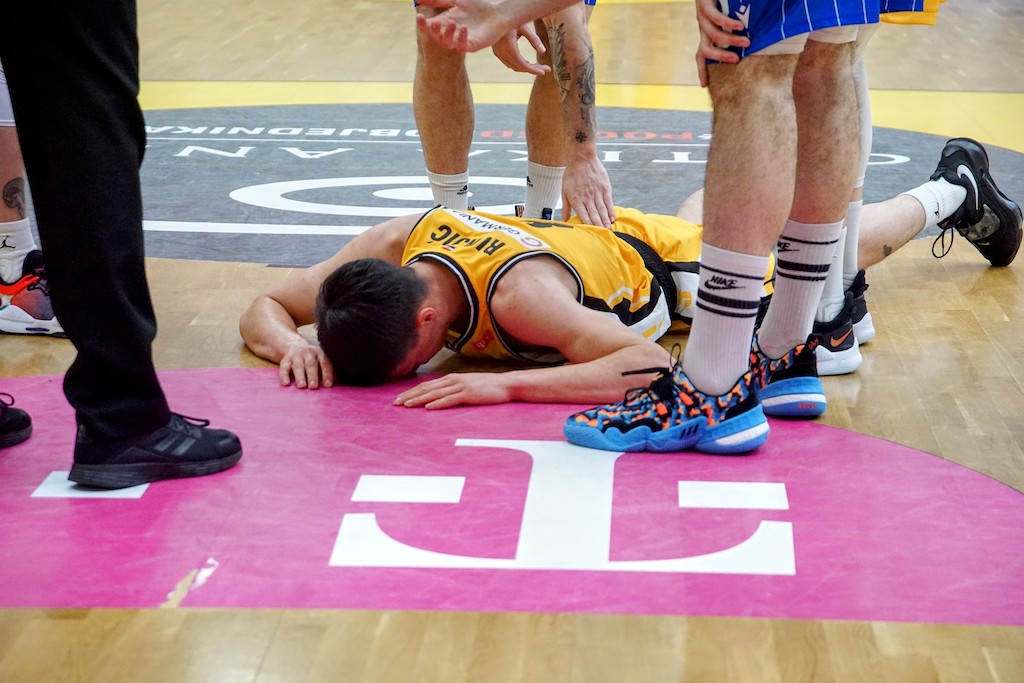
Srđan Subotić had to leave the gym with his head bowed down. This game should not have been lost. Once again, the low free throw percentage (12 of 19 = 63%) cost his team a victory. Kovačević was the top scorer for the home team with 16 points (5 of 10 three-point shots)
Box score: https://fibalivestats.dcd.shared.geniussports.com/u/HKS/2072167/bs_en_AU.html
Referees: Hordov Tomislav, Radojković Josip, Gracin Franko
HT Premijer Liga format:
The Croatian basketball championship is played in 3 rounds. The twelve teams of HT Premijer Liga play each other twice to establish the top and bottom half of the league. The points are maintained in the second round, where the top 6 teams play each other twice in the championship round; the last 6 teams also play each other again twice in the relegation round. Then the top 6 teams and the best two teams of the relegation round play each other in the playoffs for the championship. The last-placed team at the end of the relegation round drops out, and the 11th faces the runner-up of the First League in a two-game match-up. The team that scores more in those two games earns the right to play in the higher league in the following season.
All photos by Burak Canboy
To read more about sports in Croatia, follow TCN’s dedicated page.
U21 Euro Qualifiers: Finland Gives Croatia First Defeat in Varaždin
March 29, 2022 - The young Croatia national team recorded their first defeat in the U21 Euro qualifiers on Tuesday, losing 2-3 to Finland in Varaždin.
The U21 Croatia national football team recorded its first defeat in Group A of the Euro qualifiers. Finland celebrated 3-2 in Varaždin.
Already after the first half, Finland shocked Croatia with three goals, with their hero being Naatan Skyttae. Finland took the lead in the 11th minute when Croatia goalkeeper Kotarski made a mistake, and Skyttae scored for 1-0.
The same player increased Finland's lead to 2-0 in the 29th minute, while he also assisted during stoppage time for Ablade to make it 3-0 for Finland at the half.
Croatia showed almost nothing in the first 45 minutes, while they played visibly better in the second half. In the 68th minute, Roko Šimić failed to score a penalty which was saved by the Finland goalkeeper Sinisalo, though not all hope was lost. Only two minutes later, Josip Šutalo scored a close-range header for 1-3.
The young Croatia side pressed until the end and found new hope in the 87th minute when Toni Fruk shot from the top of the penalty area and reduced the score to 2-3. But by the end, the result had not changed. Thus, after six victories, the Croatia U21 side recorded a draw (Austria 0-0) and a defeat (Finland 2-3) in the last week during the U21 Euro qualifiers.
Fortunately, Igor Bišćan's team received good news from the Austria-Norway match, with Austria winning 2-1. Croatia thus kept a four-point advantage over Norway, while Austria has three points more than Norway in second place, but also a game less.
Croatia will still play against Norway (June 3) and Estonia (June 8). Only the winner of the group will qualify directly for the 2023 Euros.
European Championship Qualifiers, U21 (Group A):
Standings
1. Croatia 8 6 1 1 19-7 19
2. Austria 9 5 1 3 20-10 16
3. Norway 7 5 0 2 19-7 15
4. Finland 7 4 1 2 12-9 13
5. Azerbaijan 7 1 1 5 6-19 4
6. Estonia 8 0 0 8 0-23 0
Source: HRT
To read more about sports in Croatia, follow TCN’s dedicated page.
Modrić and Kramarić Score in Croatia's 2:1 Win against Bulgaria in Doha
March 29, 2022 - Modrić and Kramarić scored in Croatia's 2:1 win against Bulgaria on Tuesday in Doha.
After Croatia played 1:1 with Slovenia on Saturday, Croatia met Bulgaria on Tuesday for their second friendly match in Doha.
Coach Zlatko Dalić changed 10 of the 11 players from the starting lineup against Slovenia. Just as he announced, he gave everyone a chance to start from the first minute, that is, to rest those who were in the starting 11 three days ago. Because Lovren wasn't ready, the only player who started both matches was Duje Ćaleta-Car.
Lineups
Croatia: (3-5-2): Ivušić - Škorić, Vida, Ćaleta-Car - Oršić, Majer, Moro, Pašalić, Barišić - Vlašić, Livaja
Bulgaria: Vucov - Turicov, P. Hristov, A. Hristov, Jordanov - Nedelev, Čočev, Malinov, Kirilov - Minčev, Despodov.
Recap
Croatia started offensively and got into Bulgaria's penalty area in the first minute. Bulgaria had their first dangerous counter in the 6th minute which Škorić cleared.
Livaja had a chance in the 8th minute and Barišić shot from the left in the 11th which was cleared for a corner. Oršić had a chance two minutes later which also went out for a corner.
Moro shot on target from 20 meters in the 20th minute which the Bulgaria keeper hit out for Croatia's third corner of the match.
Bulgaria had a chance in the 25th minute which Ivušić defended for a Bulgaria corner. Mile Škorić was injured moments later forcing Pogrančić to be subbed on in the 28th minute.
Barišić shot again from the left in the 35th minute and Orišić with his left foot three minutes later.
The first half ended 0:0 with 59% of possession for Croatia and 11 total shots, 4 of which were on target.
Perišić and Kovačić came on for Moro and Vida to start the second half.
Perišić threatened Bulgaria's goal two minutes into the second half. Pašalić also had a chance in the 54th minute.
In the 60th minute, Vlašić and Livaja came out for Kramarić and Budimir.
In the 63rd minute, Ćaleta-Car got his second yellow card and was sent off, forcing Croatia to play with a man down.
Despodov took advantage of a hole in Croatia's defense to put Bulgaria ahead in the 69th minute. A foul was called on Kramarić in the penalty area five minutes later and Modrić scored from the penalty spot for 1:1.
Kramarić dribbled through Bulgaria's defense in the 80th minute to find the far post for 2:1 Croatia.
Bulgaria had a brilliant chance in the 87th minute after Kovačić lost the ball, though Barišić saved the day to keep it 2:1.
Bulgaria had another chance in the 90th minute and the ref added 4 minutes of stoppage time. The match ended 2:1 for Croatia.
To read more about sports in Croatia, follow TCN’s dedicated page.
Third EU-Funded Play Centre and Toy Library Set Up in Međimurje
ZAGREB, 29 March 2022 - A Play Centre and Toy Library was opened on Tuesday in the Držimurec- Strelec settlement in the municipality of Mala Subotica in Međimurje County, and the project was funded by the European Union.
This is a community where two out of five children do not attend kindergarten programmes and the facility was made possible as part of the UNICEF's programme "Phase III of the Preparatory Action for the EU Child Guarantee."
The EU-funded Child Guarantee is aimed at breaking the cycle of disadvantage.
According to the information available on UNICEF's website, the "Child Guarantee" is an initiative of the European Commission that aims to ensure that the most vulnerable children in the European Union have access to healthcare, education, childcare, decent housing and adequate nutrition, ultimately aiming to ensure the progressive realisation of child’s rights in Europe.
The 24-month pilot programme called "Testing the Child Guarantee in the EU Member States," is supposed to contribute to developing the Child Guarantee framework at the EU level as well as showcase innovative approaches and develop national action plans to reduce child poverty and address systemic disadvantages for children in seven member-states: Bulgaria, Croatia, Germany, Greece, Italy, Lithuania and Spain.
Attending the ceremony, Vesna Šerepec of the Croatian Education Ministry said expressed hope that on her next visit to the centre, she would meet smiling and happy children using these facilities.
The head of UNICEF's office for Croatia, Regina Castillo, said that the centre was not a substitute for a kindergarten but an excellent supplement.
This is the fourth centre of its kind in Croatia, and the third in Međimurje County.
Former Sisak-Moslavina County Head Sentenced to Seven Years for Corruption
ZAGREB, 29 March 2022 - The former head of Sisak-Moslavina County, Marina Lovrić Merzel (SDP), was found guilty of corruption and sentenced to seven years in prison on Tuesday. She has the right to appeal, but since her sentence is longer than five years, she will have to go straight to prison from the courtroom.
Three other defendants were also found guilty - Silvijo Kobeščak, former president of the supervisory board of the Ceste Sisak roads company; Bernard Popec, who sold the county a building for emergency medical services above the market price, and Dalibor Rožanković, Lovrić Merzel's nephew who laundered the money Lovrić Merzel received in bribes by purchasing a holiday apartment.
The indictment also included businessman Željko Žužić, who made a deal with the prosecution, after admitting that he had given Lovrić Merzel €100,000 in bribes, and was given a suspended sentence of one year's imprisonment with four years' probation, and the former director of the Hrvatske Šume forest management company, Zvonko Rožić, who was sentenced to eight months in prison with two years' probation after reaching a deal with the USKOK anti-corruption office.
Lovrić Merzel was charged with receiving €100,000 in bribes from Žužić in return for selling the Ceste Sisak company to his company. She concealed this transaction by purchasing a holiday apartment and registering it in her nephew's name.
According to the indictment, contrary to the decision by the county to build a building housing emergency medical services at another location, Lovrić Merzel did all in her power to ensure that the county bought Popec's property at a considerably higher price, as a result of which his company made undue gain of about HRK 4 million while the county was defrauded of HRK 5.6 million.
Merzel Lovrić was also charged with commissioning unnecessary advisory services, incurring excessive entertainment expenses and concluding fictitious project contracts.
Lovrić Merzel and her co-defendants were arrested in April 2014 and four months later she resigned as Sisak-Moslavina County Prefect. The trial opened in June 2018, but had to start over three months later after a judge withdrew from the case.
Jandroković: It's not time for political games but responsbile politics
ZAGREB, 29 March 2022 - Croatian Parliament Speaker Gordan Jandroković said on Tuesday that "it isn't time for political games," but resolute and responsible politics and that any possible government reshuffle would first be discussed within the ruling party's bodies.
"I expect that we will discuss the government's work, the Sabor's activities and topics that interest the public. We will see what the (party leader) will have to say," Jandroković said ahead of a meeting of the Croatian Democratic Union's (HDZ) presidency and national council scheduled for this afternoon in Karlovac.
He was responding to questions from Croatian reporters about a possible government reshuffle while attending a conference of EU parliament speakers in Slovenia.
Asked whether the Minister of Regional Development and EU Funds Nataša Tramišak should be replaced, Jandroković said that the "prime minister picks his team" and, as this refers to his closest associates, he will most certainly enjoy the party's support.
Asked about the other ministers, Jandroković said "they are probably doing their job."
Asked whether there were some HDZ MPs or others in the ruling coalition who could vote against a government reshuffle if Minister Tramišak were to be replaced, Jandroković said "these are serious times, very demanding, and they require big responsibility of politicians, bigger than when we do not have such crisis situations."
"The primary objective at the moment is political stability, a quality response to a series of security, socioeconomic and health issues, and this isn't a time for political games. This a time for serious and responsible politics," said Jandroković.
When it comes to media speculation about some HDZ MPs perhaps being opposed to a reshuffle, Jandroković said HDZ MPs are responsible people and will certainly think well about what to do and how.
"Do not expect HDZ MPs to act in a way that would go against what is important for Croatia," he underscored.
Jandroković, who, in public opinion, is considered to be the herald of change in the party, did not wish to answer whether it was time for the government to be refreshed and instead said that he would first say what he thinks to his party colleagues and then make that public.
Croatia Open to Further Investment by German Companies, PM says
ZAGREB, 29 March 2022 - Germany is Croatia's key trade partner and Croatia is open to further investment by German companies, Prime Minister Andrej Plenković said on Tuesday after meeting with a delegation of the German Eastern Business Association.
The meeting discussed the strengthening of Croatian-German economic cooperation and the main areas for the further investment by German companies in Croatia, the government said in a press release.
Germany remains Croatia's number-one foreign trade partner and trade in 2021 totalled €6.4 billion, it added.
The meeting at the government was also attended by Foreign Minister Gordan Grlić Radman and Economy Minister Tomislav Ćorić.
The German Eastern Business Association is a regional initiative of the German economy for 29 countries in Central, Eastern and Southeastern Europe, the South Caucasus and Central Asia,. It has around 350 member companies.
Plenković informed the delegation of Croatia's strong economic recovery in 2021 and the government's plans to further stimulate growth, the utilisation of European funds as part of the National Recovery and Resilience Plan and the new EU budget, and upcoming steps to join the Schengen and euro areas.
The prime minister also informed the delegation of tax relief measures as well as those to advance the investment and business climate in Croatia.
He also commented on the Russian aggression in Ukraine, Croatia's measures to help Ukraine, and the war's repercussions on energy and food supplies.
The German companies presented their existing and potential projects in Croatia, confirming their willingness to continue to cooperate and invest.
To date, German companies have invested €3.9 billion in Croatia, making Germany one of the biggest investors, the government said.


